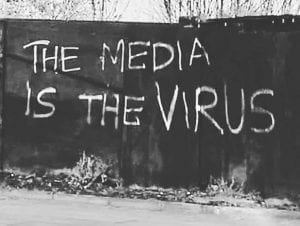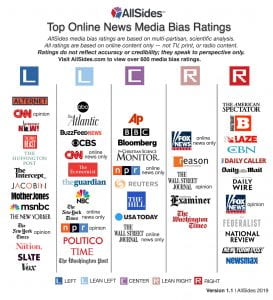I published this column 12 summers ago. It seems more important NOW than it was then.
There’s nothing that gets me going like a room full of people bashing “today’s media.” I’m fairly certain that the majority of the public (and in 2020, our president) seem to enjoy, perhaps even taking great pleasure in, blaming the media for the world’s woes.
In my estimation, there are a number of overly-used scapegoats for the evils of modern-day society including: Oil companies, big businesses in general, the president, the government, lawyers, fast food restaurants, mothers-in-law, and the media.
As a former full-time member of the print media myself, I feel somewhat compelled to discuss the merits of the occupation; however, as a former teacher of journalism I feel 100 percent duty-bound to adamantly defend what I believe is a noble profession.
Allow me to explain.
First of all, the life of a journalist is not an easy one. It is a stressful, fast-paced, deadline-oriented job. Think about trying to finish your taxes on the evening of April 15 everyday of your life. The stress is exhausting.
Which brings me to the vacation/days off aspect of the journalism world. Do criminals take a day off from committing felonies and misdemeanors? Do earthquakes, famines and warmongers wait until after the holidays to vex the planet? Uh, no. So taking days off? Not so easy.
Then there is the glorious pay. Want to know what a beginning journalist makes? Often less than what a beginning teacher gets, and they both have four-year degrees. But being a journalist is one of those kinds of jobs where you have to work your way up, or make a name for yourself to make the big bucks. And we wonder why journalists get a little crazy in pursuit of “the story.”
Ah, the story – the crux of a journalist’s life. But getting the story is no easy feat. It requires talking to people you don’t know, calling those who are often dealing with difficult issues, and standing by at the scene of an accident or crime – quickly trying to find out things that most people involved would rather not discuss. It often means asking tough questions that you, yourself, wouldn’t want to be asked either. Overall, it’s uncomfortable, and most usually entails making others uncomfortable as well.
So why do they do it? For you! A journalist is similar to the disciplining parent. We, the people (a.k.a the kids) don’t like to be dealt with harshly. We don’t want to be in the hot seat. But journalists are the watchdogs, the ones keeping people, entities, agencies, and our government accountable for their actions. It’s an extremely necessary evil.
Journalists are the embodiment of a true democracy. They represent the principles of a free nation. They are here to serve the public with information as well as to provide an outlet for the exchange of ideas – as crazy as those ideas may be, and whether we all agree with them or not.
Look, I understand the media-bashing mentality. I see how different today’s media are than in decades past. But the world is different, too. And sure, there are journalists out there, paparazzi in particular, who lie and deceive to get a story.
Many of you media-bashers have been burned yourselves. You’ve said something one time to a reporter and think that it was distorted it to sound a different way. Reporters are human. It happens. One person says something, and another hears it in a different way. (Not much different than you and your spouse.) It’s often not on purpose. Besides, even if it is, let’s not be naive. There are bad guys in every profession.
But here’s what I don’t understand: Why are you people always bellyaching that there’s not enough “good news” in the media, and furthermore, why is everything the media’s fault?
I think we have some bonafide miscommunication. The news is not here to merely tell the warm, fuzzy stories of the day. That’s what sermon illustrations and grandma’s gab sessions are for. Journalists must report on the news, whether we like it or not.
If the news were about anything that happened, then we would be printing articles on the front page about me plucking my eyebrows and losing my dog in the rain.
That’s not news.
What makes something newsworthy? Here’s what they teach in journalism school. A story is news if it has: Conflict, Impact, Timeliness, Human Interest, Prominence, and Proximity. (P2ITCH if you want a handy, dandy acronym.)
Did the event happen recently? Will people be interested in it? How will this event impact my readers/viewers? Is there an element of conflict? Does it involve someone of prominence? Did it happen in this area?
A story may have one or all of these elements, but that is how something is judged as news. There is a method to the madness. And yes, sometimes there is madness. I, too, get sick of the news cycle and its implications. The traditional values of the media – verification, objectivity, relevance, and depth of reporting – are shifting toward sensationalism, entertainment and opinion. Agreed. But guess what? You have the same on/off button on your television as I do. And just because we don’t like it doesn’t mean that journalists don’t serve a valid purpose overall.
The news is ever changing. The news is blunt, it’s in our face, and it keeps people accountable. Sometimes it’s bad news, sometimes it’s unethical, sometimes it’s done wrong or poorly or all of the above. But on a good day it makes us think and question issues. It informs, urges and compels. And if it happens to entertain or make us smile, that’s good too.
Our founding fathers knew what they were doing when they gave us the freedom of speech and the freedom of the press. Journalists, whether they always do it in practice, are here in theory to serve the greater good. But nobody’s perfect. Not the president. Not the lawyers, not the media. It doesn’t mean we should boot ’em all out.
And if you disagree, that’s what we have editorial sections for. Complain all you want there. And I will complain all I want here.
Ain’t America grand?
Wanna find out where YOUR media stands on being Biased in its reporting coverage? Check out this website:
https://www.allsides.com/media-bias/media-bias-chart

